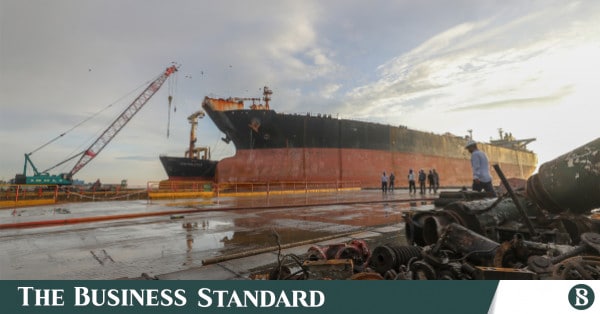Shipbreaking goes green: What is green certification?
Bangladesh's Shipbreaking Industry Goes Green

In a significant shift towards sustainability, Bangladesh’s shipbreaking industry is embracing greener practices. As the world’s leading hub for shipbreaking, the country has begun implementing cleaner and safer methods in compliance with international standards. Following the ratification of the Hong Kong International Convention (HKC) in 2023, Bangladesh aims to ensure that all shipbreaking yards meet HKC compliance by June 26, 2025. Currently, 14 out of 153 registered yards have already secured green certifications, marking a pivotal moment for this historically hazardous sector.
A Transformative Shift in Shipbreaking Practices
The shipbreaking industry in Bangladesh has long been criticized for its dangerous working conditions and environmental impact. However, a quiet revolution is underway. The adoption of green practices is not just a regulatory requirement; it is a response to global demands for safer and more environmentally friendly operations. The HKC, which sets the benchmark for safe and environmentally sound ship recycling, has spurred this transformation.
Green certification signifies that a shipbreaking yard operates in a manner that minimizes harm to both workers and the environment. This includes effective waste management, safe handling of hazardous materials, and the use of protective equipment for workers. The certification process involves rigorous assessments by international classification societies, which issue Statements of Compliance (SoCs) to yards that meet these standards.
To achieve green certification, shipbreaking yards must implement significant infrastructural and operational changes. These include installing impermeable flooring to prevent pollutants from seeping into the ground and establishing proper drainage systems equipped with oil-water separators. Furthermore, dismantling operations are now conducted in controlled environments rather than on open beaches, significantly reducing the risk of environmental contamination.
Occupational safety is also a top priority. Certified yards provide personal protective equipment, structured safety training, and on-site medical care for workers. Each facility must develop a Ship Recycling Facility Plan that outlines safe dismantling procedures tailored to the specific hazardous materials present in the ships being recycled. This comprehensive approach ensures that operations are conducted ethically and sustainably, transforming a once notorious industry into a model of compliance and safety.
The Road Ahead: Challenges and Opportunities
Despite the progress, challenges remain. The transition to green practices requires substantial investment, with costs for upgrading a yard potentially exceeding Tk30 to Tk40 crore. Financing, technology transfer, and the availability of skilled labor are ongoing hurdles that the industry must navigate. However, the benefits of certification are clear. Certified yards can command higher prices per vessel and attract international clients, while also contributing to the protection of coastal ecosystems.
Bangladesh’s shipbreaking industry, centered in Sitakunda, Chattogram, has historically been one of the most hazardous in the world. Yet, with the implementation of the Bangladesh Ship Recycling Act in 2018, the groundwork for reform was laid. This legislation aimed to align the industry with the HKC, establishing a framework for regulatory oversight and long-term planning.
As of now, 14 yards have achieved green certification, with another 20 in the process of upgrading. The Bangladesh Ship Recycling Board (BSRB) oversees compliance and monitors yard performance, ensuring that safety and environmental standards are upheld. Plans are also in place to establish centralized pre-cleaning facilities and a formal worker training center in collaboration with international agencies.
While Bangladesh may have entered the green ship recycling arena later than countries like Turkey and India, its momentum is undeniable. With continued investment and commitment from the industry, Bangladesh is poised to not only catch up with global leaders but potentially emerge as a frontrunner in sustainable shipbreaking practices. The transformation of this sector is no longer a distant goal; it is an evolving reality that holds promise for both the economy and the environment.
